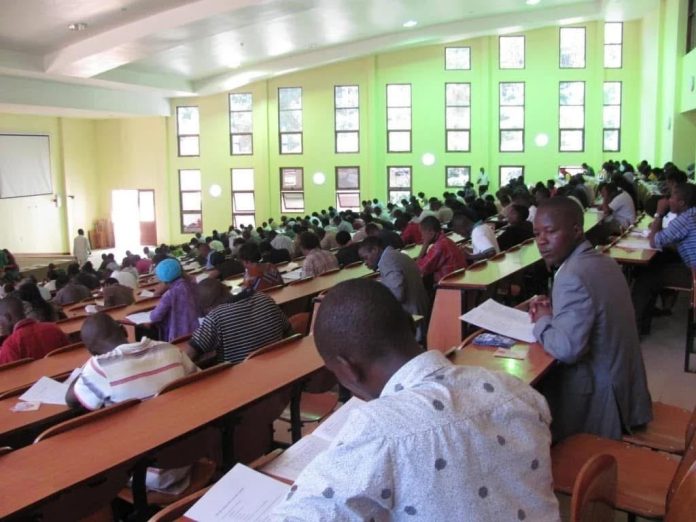A bill currently before the House of Representatives seeking stiffer penalties for examination malpractice has sparked a nationwide debate among Nigerians, with critics slamming lawmakers for allegedly misplacing priorities amidst growing national insecurity and economic hardship.
The proposed legislation, titled Examination Malpractices Act (Repeal and Enactment) Bill, 2025 (HB2097), was introduced on March 6, 2025, by Hon. Esosa Iyawe, who represents Oredo Federal Constituency. The bill seeks to repeal the existing Examination Malpractice Act Cap. E15, Laws of the Federation of Nigeria, 2004, and enact a new framework to expand the scope of examination-related offences and impose tougher penalties.
According to the bill’s explanatory memorandum, the law aims to introduce non-custodial sentencing options, broaden the range of examination-related offences, and ensure adequate punishment for violators.
Among the proposed provisions, the bill prescribes a five-year jail term, a N500,000 fine, or both for any individual convicted of leaking examination questions. Minors under the age of 18, if convicted of participating in malpractice, face a three-year jail term, with courts expected to treat them in accordance with the Child Rights Act.
Furthermore, school officials such as principals, teachers, and exam supervisors found guilty of aiding or abetting malpractice face a mandatory four-year imprisonment without the option of a fine. Also highlighted are penalties for impersonation, tampering with exam scores, unauthorized use of technological devices during exams, and attempts to communicate answers during tests — with penalties ranging from N300,000 to N500,000 fines or jail terms of up to four years depending on the offender’s status and age.
Since the bill became public, it has provoked strong and divergent reactions. While some Nigerians welcomed the attempt to restore credibility to the country’s education system, many others criticized lawmakers for ignoring more pressing national challenges.
Chief Maxi Okwu, former National Chairman of the All Progressives Grand Alliance (APGA) and a legal practitioner, was blunt in his assessment. “I think those lawmakers are idle. There are more important issues to tackle,” he told DAILY POST. “It is not as if I am encouraging exam malpractice, but in the order of national priorities, this is far from the top. Terrorists and bandits are spilling blood unchecked, yet lawmakers are chasing shadows.”
Okwu acknowledged the need for punishment but insisted that the existing law already provides for it. “If you want to improve the law, fine — but don’t elevate it above national security, hunger, and mass poverty.”
Echoing similar sentiments, public affairs analyst and legal practitioner Adekunle James questioned the moral authority of lawmakers championing the bill, accusing some of them of having questionable academic credentials themselves.
“Most of them are in the National Assembly with forged certificates. So, for them to be talking about exam malpractice is hypocrisy,” James said. “People are dying daily, families can’t afford food or medicine, and house rents are skyrocketing. Yet, of all the pressing issues in the country, they chose to focus on exam malpractice?”
James added, “These lawmakers should focus on their constitutional duties — passing laws that address poverty, insecurity, and unemployment. Anything short of that is a distraction and a disservice to the Nigerian people.”
Despite the criticism, proponents of the bill argue that curbing examination malpractice is essential for national development, as it directly affects the quality of education and the credibility of the country’s academic institutions.
The bill has passed its first reading and awaits a second reading in the House. Whether it will pass in its current form or be revised in response to public outcry remains to be seen. For now, the proposed law has ignited a necessary — albeit contentious — national conversation on justice, priorities, and the role of legislation in solving Nigeria’s complex challenges.

